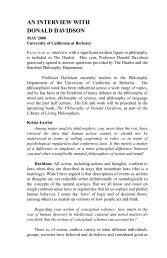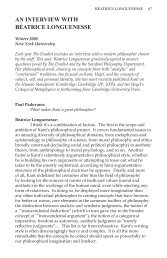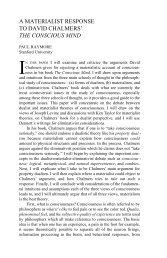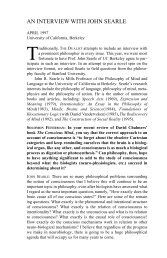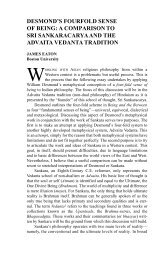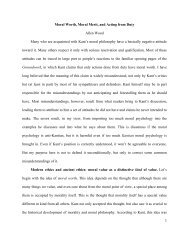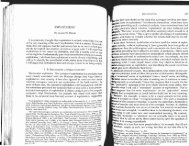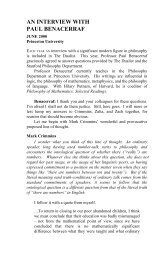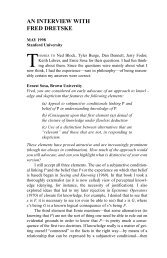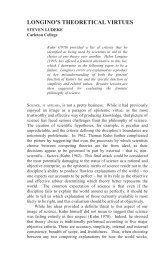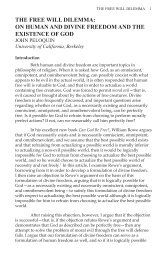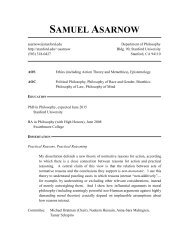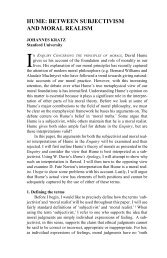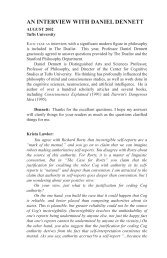The Independence of Right from Ethics Allen Wood Right and ethics ...
The Independence of Right from Ethics Allen Wood Right and ethics ...
The Independence of Right from Ethics Allen Wood Right and ethics ...
Create successful ePaper yourself
Turn your PDF publications into a flip-book with our unique Google optimized e-Paper software.
eing equally requires that its freedom be protected <strong>from</strong> destruction, limitation or usurpation bythe choice <strong>of</strong> another.And just as morality requires us, when we set our ends <strong>and</strong> choose means to them, to act onmaxims that hold as universal laws <strong>from</strong> the impartial st<strong>and</strong>point <strong>of</strong> reason, so reason alsorequires us to recognize every person’s equal right to be free <strong>from</strong> the constraint <strong>of</strong> the will <strong>of</strong>others in choosing his actions. This rational requirement <strong>of</strong> equal freedom consists in having thechoice <strong>of</strong> every rational being protected <strong>from</strong> external interference to the fullest extent that it canbe, consistently with a like freedom <strong>of</strong> all others according to universal law. <strong>The</strong> coercion that isconsistent with right depends on the claim that everyone’s external freedom must be limited inorder that all may have external freedom. No one’s external freedom should be limited merelyfor the sake <strong>of</strong> some end, either <strong>of</strong> that person or <strong>of</strong> others. But the external freedom <strong>of</strong> each <strong>of</strong>us must be restricted in order that others may be externally free. This is the basis, in Kant’stheory <strong>of</strong> rational action, for right, the supreme principle <strong>of</strong> right, <strong>and</strong> all the claims <strong>and</strong> duties <strong>of</strong>right. In both <strong>ethics</strong> <strong>and</strong> in right, there is a rational constraint imposed by the equal recognition <strong>of</strong>others, or, as we may also put it, by the requirement that our actions conform to the constraints <strong>of</strong>universal law. This formal constraint <strong>of</strong> reason, requiring the recognition <strong>of</strong> others as having thesame claims we do, <strong>and</strong> limiting permissible actions to those conforming to universal law, iscommon to duties <strong>of</strong> right <strong>and</strong> <strong>of</strong> <strong>ethics</strong>. That is what makes these two spheres both spheres <strong>of</strong>“morals” (Sitten).To put the same point another way: Neither ethical duties nor duties <strong>of</strong> right are based on aselfish calculation to the effect that if I treat others in a certain way, they will treat me in asimilar way. Duties <strong>of</strong> beneficence are not based on the thought that if I help others when theyare in need, then they will (be more likely to?) help me when I am in need, or conversely, that if I10



